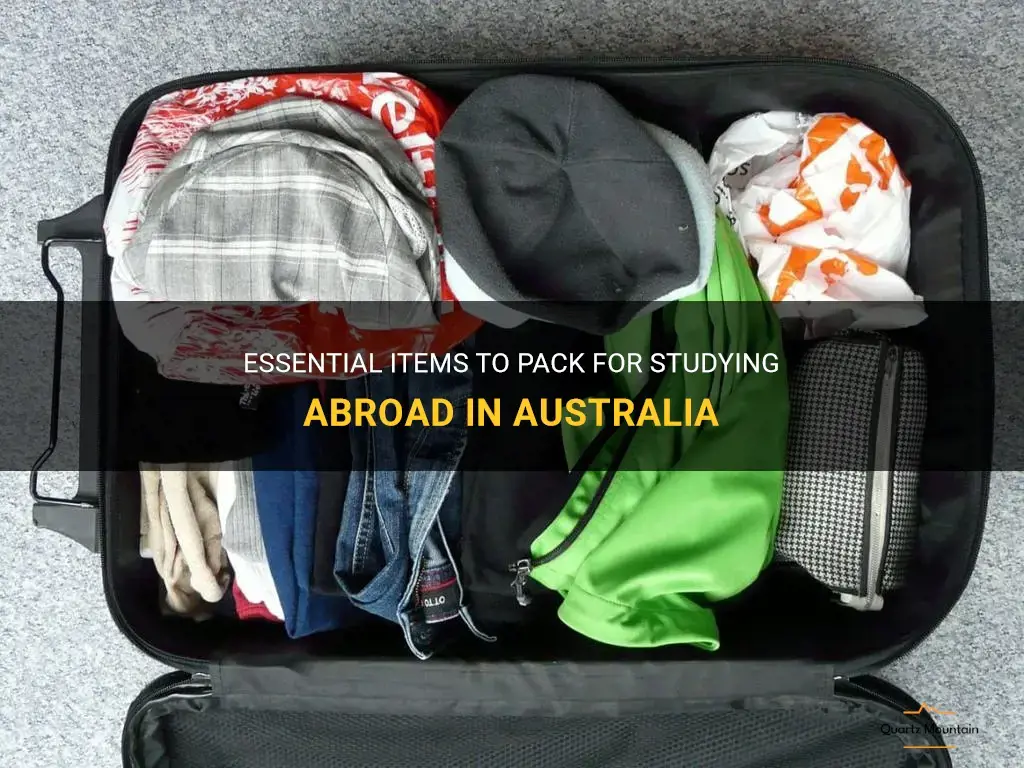
Studying abroad in Australia is an exciting adventure that offers endless opportunities for personal and academic growth. However, with the excitement comes the challenge of packing your essentials for this new chapter in your life. From practical items to cultural must-haves, there are several key things that you should consider packing to ensure a smooth transition and a successful study abroad experience in the land down under. In this guide, we will explore the essential items that will help you thrive academically, socially, and culturally while studying abroad in Australia.
What You'll Learn
- What essential items should I pack for studying abroad in Australia?
- What type of clothing is appropriate for different seasons in Australia?
- Are there any specific items that are necessary for Australian customs or regulations?
- Can I bring my electronics, such as laptops and cell phones, and will they work in Australia?
- Is there anything else I should consider packing that may not be obvious for studying abroad in Australia?

What essential items should I pack for studying abroad in Australia?
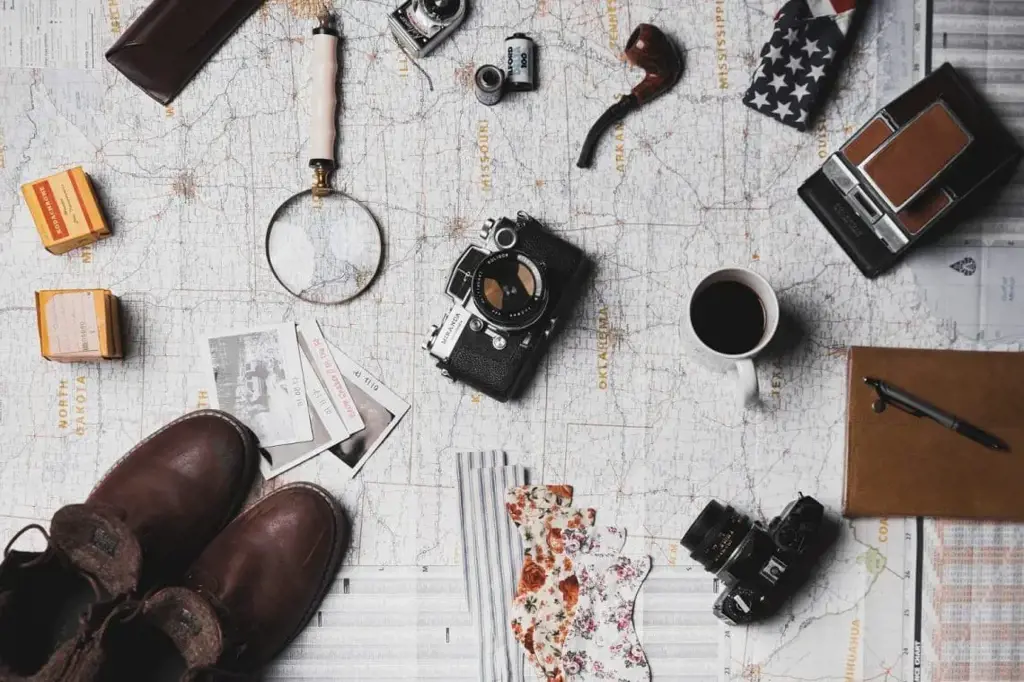
Studying abroad can be an exciting and rewarding experience, but it also requires careful planning and preparation. When packing for Australia, there are several essential items you should include to ensure a smooth and comfortable stay. From everyday essentials to specific items for the Australian climate and lifestyle, here are some key things to pack:
- Travel documents: Before leaving for Australia, make sure you have all your necessary travel documents in order. This includes your passport, visa, health insurance information, and any required permits or certificates.
- Clothing for all seasons: Australia has a diverse climate, ranging from hot summers to cool winters, so be sure to pack clothing that covers all seasons. Include lightweight and breathable clothes for the summer months, as well as warmer layers for the colder periods. Don't forget to pack a raincoat or umbrella, as the weather can be unpredictable.
- Comfortable walking shoes: Australia is known for its outdoor lifestyle and beautiful landscapes, so comfortable shoes are a must. Whether you plan to explore the cities, hike in national parks, or simply walk to class, a good pair of walking shoes will make a world of difference.
- Power adapters: Australia uses a different electrical outlet and voltage system than many other countries, so it's important to pack the appropriate power adapters for your electronics. This will ensure that you can charge your devices and stay connected throughout your stay.
- Personal hygiene and medications: Pack a supply of your essential toiletries, including toothpaste, shampoo, and any other personal care items you prefer. It's also wise to bring any necessary medications with you, along with a copy of your prescriptions, in case you need to refill them while abroad.
- Money and banking essentials: Before traveling to Australia, familiarize yourself with the local currency and banking system. Consider setting up a local bank account once you arrive, and bring a sufficient amount of cash to cover initial expenses. It's also a good idea to notify your bank of your travel plans to prevent any issues with accessing your funds.
- Study materials and laptop: Depending on your course of study, you may need to bring textbooks or other study materials with you. Additionally, having a laptop or tablet can be extremely useful for taking notes, completing assignments, and staying organized.
- Travel insurance: It's crucial to have comprehensive travel insurance that covers medical emergencies, trip cancellations, and other unforeseen circumstances. Keep a copy of your insurance policy and emergency contact numbers handy at all times.
- Australian SIM card: To stay connected with family and friends during your time abroad, consider purchasing a local SIM card for your smartphone. This will allow you to make calls, send text messages, and access data at affordable rates.
- Personal mementos: Finally, don't forget to pack some items that remind you of home and bring comfort during your time abroad. This could be family photos, a special piece of jewelry, or anything else that makes you feel connected to your loved ones.
Remember, when packing for your study abroad adventure in Australia, it's important to strike a balance between practicality and personal preference. Consider the local climate and cultural practices, as well as your own personal needs and preferences. By packing wisely, you'll be well-prepared to make the most of your time studying in Australia.
Essential Items to Pack for Backpacking in Asia
You may want to see also

What type of clothing is appropriate for different seasons in Australia?
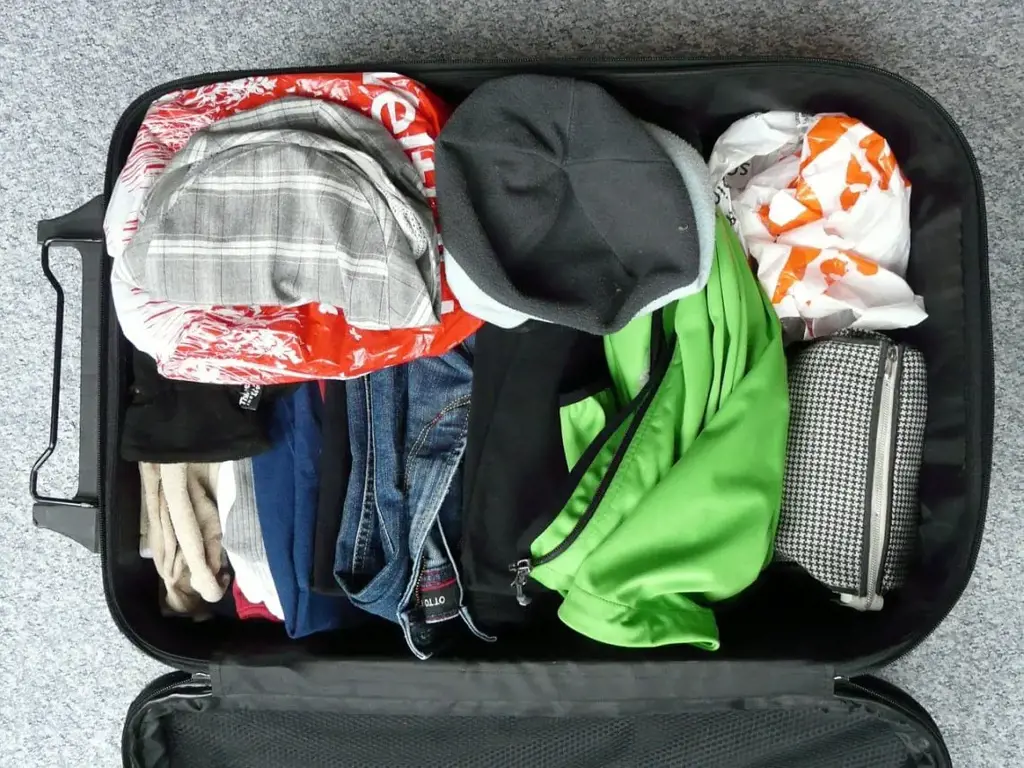
Australia is a diverse country with varying climates throughout the year. Due to its location in the Southern Hemisphere, the seasons in Australia are the opposite of those in the Northern Hemisphere. It is important to dress appropriately for each season to stay comfortable and adapt to the changing weather conditions.
Spring (September to November):
Spring in Australia is transitional, with temperatures becoming warmer and more pleasant. However, mornings and evenings can still be cool. It is advisable to wear comfortable layers that can be removed as the day warms up. Light jackets, cardigans, and long-sleeved shirts are essential during this season. For bottom wear, opt for jeans, trousers, or skirts with stockings to keep warm in the mornings and evenings.
Summer (December to February):
Summers in Australia can be extremely hot, with temperatures soaring above 40 degrees Celsius (104 degrees Fahrenheit) in some parts. Lightweight, breathable clothing is crucial to stay cool during this season. Loose-fitting cotton shirts, tank tops, shorts, dresses, and skirts are ideal choices. It is also essential to protect yourself from the intense sun by wearing a wide-brimmed hat, sunglasses, and applying sunscreen regularly.
Autumn (March to May):
Autumn in Australia is characterized by gradually cooling temperatures. The mornings and evenings can be cooler, while the days remain mild and pleasant. Layering is key during this season. Opt for cardigans, light jackets, and long-sleeved shirts paired with trousers, skirts, or jeans. Scarves and beanies can also be perfect accessories to add warmth and style to your attire.
Winter (June to August):
Winters in Australia can vary in severity depending on the region. Some parts experience mild winters, whereas others can have freezing temperatures, especially in the southern states. Thick sweaters, coats, jackets, and warm woolen clothing are essential during this season. Layering is important to trap body heat and stay warm. Pair your outfits with closed-toe shoes, warm socks, gloves, and a beanie or earmuffs to protect the extremities from the cold.
It is also worth noting that Australia is a large country, and the climate can differ significantly between regions. Coastal areas generally have milder temperatures compared to inland regions. It is recommended to research and consider the specific climate of the area you plan to visit or live in.
In summary, dressing appropriately for each season in Australia is essential for comfort and to adapt to the changing weather conditions. Always consider layering, wear breathable fabrics during hot summers, and opt for warm, insulating clothing during cold winters. By following these guidelines, you can enjoy your time in Australia while being comfortable and prepared for any weather.
10 Delicious Lunch Ideas for Your Husband's Packed Meal
You may want to see also

Are there any specific items that are necessary for Australian customs or regulations?
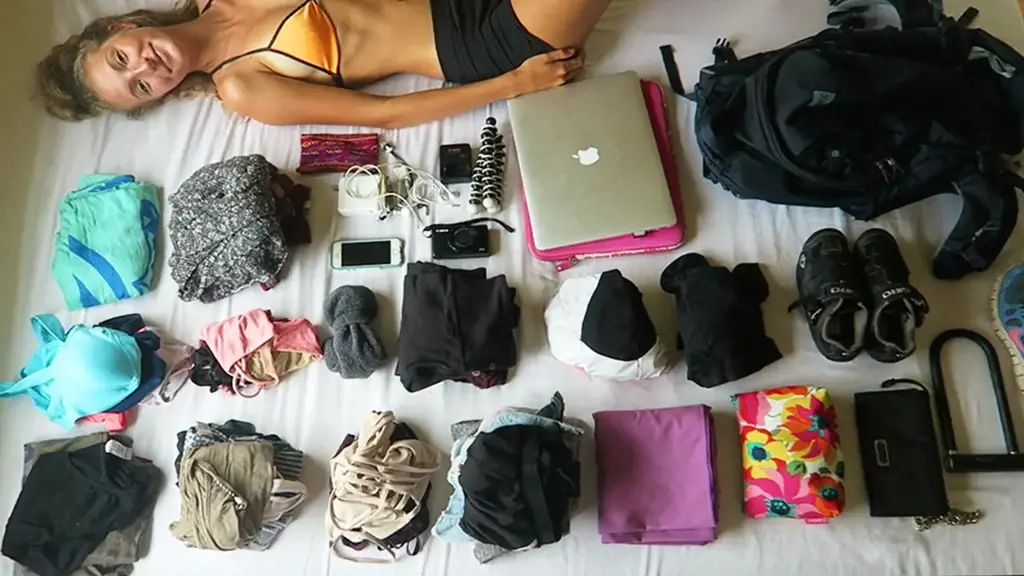
Australia has strict customs and regulations when it comes to importing goods into the country. It is important to be aware of these regulations before shipping any items to Australia.
One specific item that is necessary for Australian customs is a import declaration form. This form is required for all goods being imported into Australia and must be filled out accurately and completely. The import declaration form includes information such as the description of the goods, the quantity, the origin and the value of the goods. It is essential to provide accurate and detailed information on this form to avoid any delays or issues with customs.
Another important item that is necessary for Australian customs is a customs clearance document. This document is issued by the Australian Border Force and is required for all goods entering the country. The customs clearance document confirms that the goods have been examined and approved by customs and are now eligible for entry into Australia. It is essential to have this document when importing goods into Australia to ensure a smooth and hassle-free process.
In addition to the import declaration form and customs clearance document, there are other specific items that may be necessary depending on the type of goods being imported. For example, if you are importing food or agricultural products, you may need to provide additional documentation such as a phytosanitary certificate or a health certificate. These documents verify that the products meet the necessary health and safety standards required by Australian authorities.
Furthermore, certain goods may be subject to additional restrictions or regulations. For example, certain items such as firearms, drugs, and endangered species are prohibited or restricted in Australia. If you are planning to import any of these items, you may need to obtain special permits or licenses to ensure compliance with Australian laws.
It is also important to note that the Australian government takes biosecurity very seriously. This means that all goods entering Australia are subject to inspection and may be required to undergo treatment, such as fumigation, to ensure they are free from pests and diseases. It is essential to follow all biosecurity requirements and regulations when importing goods into Australia to avoid any issues or penalties.
In conclusion, there are several specific items that are necessary for Australian customs and regulations. These include the import declaration form, customs clearance document, and any additional documentation or permits that may be required depending on the type of goods being imported. It is important to thoroughly research and understand the customs and regulations before shipping any items to Australia to ensure a smooth and successful import process.
The Perennial Struggle: Decoding the 'Trying to Figure Out What to Pack' Meme
You may want to see also

Can I bring my electronics, such as laptops and cell phones, and will they work in Australia?
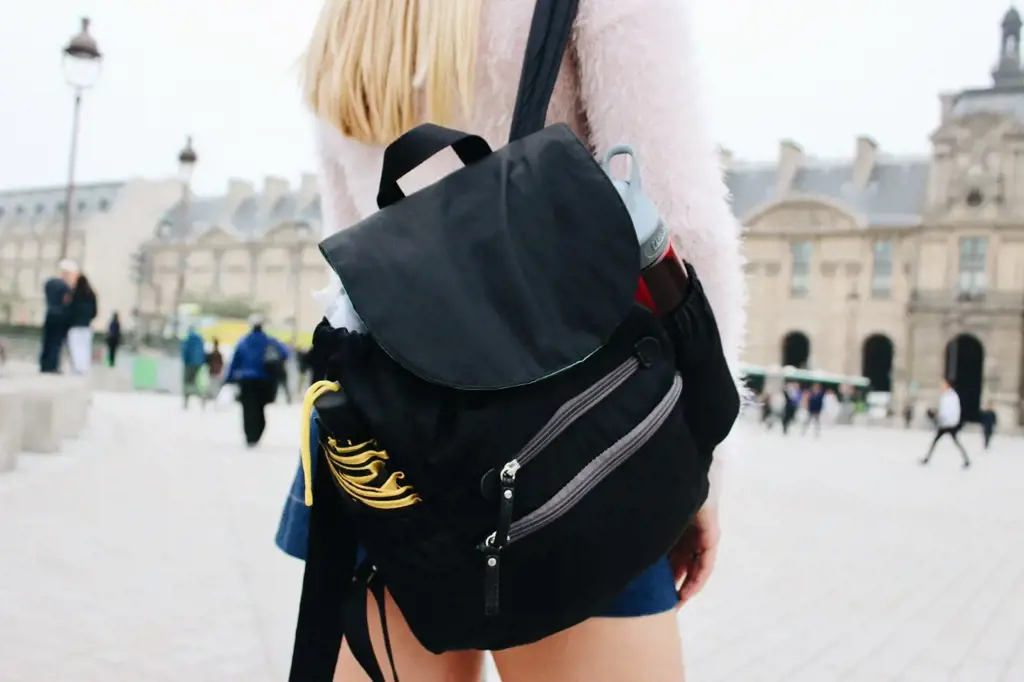
Australia is a popular travel destination for people from all over the world. If you're planning a trip to the land Down Under, you may be wondering if you can bring your electronics, such as laptops and cell phones, and if they will work in Australia. The good news is that you can bring your electronic devices with you, and they will work just fine in Australia. However, there are a few things you should keep in mind.
Firstly, it's important to check the voltage requirements of your electronic devices. Australia uses a voltage of 240V, which is different from the voltage used in many other countries, including the United States (120V). Most modern electronic devices, such as laptops and cell phones, are designed to be compatible with different voltages. However, it's always a good idea to double-check the voltage requirements of your specific devices before you travel.
If your electronic devices are not compatible with the 240V voltage used in Australia, you may need to use a voltage converter or transformer. These devices can convert the voltage from the Australian standard to the voltage required by your devices. However, it's worth noting that not all electronic devices are compatible with voltage converters or transformers. Some devices, such as certain hair dryers and electric shavers, may not work properly even with a voltage converter. In these cases, it's best to leave them at home and purchase a new one when you arrive in Australia.
Another thing to consider when bringing electronics to Australia is the type of plug used in the country. Australia uses a different plug type, known as Type I, which has three rectangular prongs. This is different from the plugs used in many other countries, including the United States and Europe. To use your electronic devices in Australia, you will need to bring a plug adapter that can convert your country's plug type to the Australian Type I plug. These plug adapters are widely available online and in electronics stores.
In terms of cell phones, most modern smartphones are designed to work on multiple frequencies and are compatible with the Australian mobile network. However, it's always a good idea to check with your cell phone carrier before you travel to ensure that your phone will work in Australia. You may need to activate an international roaming plan or purchase a local SIM card in order to use your phone while you're in the country.
In conclusion, you can bring your electronics, such as laptops and cell phones, to Australia, and they will work just fine. However, it's important to check the voltage requirements of your devices and consider purchasing a voltage converter or transformer if necessary. Additionally, you will need a plug adapter to use your devices in Australia. As for cell phones, most modern smartphones are compatible with the Australian mobile network, but it's always a good idea to check with your cell phone carrier before you travel. With a little bit of preparation, you can stay connected and enjoy your electronic devices while visiting the beautiful country of Australia.
The Ultimate Guide to Packing for a Backpacking Trip: Tips and Tricks from Reddit Users
You may want to see also

Is there anything else I should consider packing that may not be obvious for studying abroad in Australia?

Studying abroad in Australia can be a thrilling and life-changing experience. As you prepare for your journey, it is important to consider all the essentials you need to pack. While the obvious items like clothing, toiletries, and electronics are essential, there are a few other things you should consider packing that may not be so obvious. Here are some additional items that can greatly enhance your experience:
- Power adapters: Australia uses a different electrical outlet standard compared to many other countries. Packing a universal power adapter will ensure that you can charge your electronic devices without any issues.
- Medications: If you have any pre-existing medical conditions or require regular medication, it is crucial to pack an ample supply for the duration of your stay. It is also wise to carry a copy of your prescription and a note from your doctor explaining the medical necessity of the medication.
- Travel insurance: Prior to embarking on your journey, it is advisable to purchase travel insurance. This will help protect you against any unforeseen circumstances such as medical emergencies, trip cancellations, or lost baggage.
- Student ID: Your student ID can provide you with various discounts and benefits. Make sure to carry it with you at all times, as it may come in handy when visiting museums, attractions, or even when shopping.
- Outdoor gear: Australia is known for its stunning landscapes and adventurous activities. Whether it's hiking in the Australian Outback or snorkeling in the Great Barrier Reef, packing appropriate outdoor gear such as comfortable walking shoes, a hat, sunglasses, and a reusable water bottle can greatly enhance your outdoor experiences.
- Rain gear: Australia, particularly in coastal areas, is known for its unpredictable weather. Packing a lightweight raincoat or an umbrella can come in handy during unexpected showers.
- Local currency: It's always a good idea to have some local currency on hand when you arrive. While credit and debit cards are widely accepted in Australia, having some cash can be convenient, especially in smaller shops or for public transportation.
- An unlocked cell phone: If you plan on using a local SIM card for your phone, make sure your device is unlocked. This will allow you to easily purchase a local SIM card upon arrival, enabling you to have a local phone number and access to affordable data plans.
- Comfortable walking shoes: Australia is a vast country with numerous scenic spots to explore. Whether you're strolling through the city streets or hiking in national parks, comfortable walking shoes are a must-have.
- A sense of adventure: Above all, packing a positive attitude and a sense of adventure is essential for studying abroad in Australia. Embrace the new experiences, make connections with locals, and be open to trying new things. This will ensure that your time in Australia is truly unforgettable.
By considering these additional items, you can ensure that your study abroad experience in Australia is not only comfortable but also filled with amazing adventures and lifelong memories. So, pack your bags, keep an open mind, and get ready for an exciting journey Down Under!
Essential Items to Pack for the Ride to Conquer Cancer
You may want to see also
Frequently asked questions
Australia's climate varies greatly depending on the region, but in general, it is a good idea to pack lightweight and breathable clothing, especially during the summer months. T-shirts, shorts, dresses, and skirts are all great options. Don't forget to pack a few warmer layers, such as a light sweater or jacket, for cooler evenings and winter weather.
Comfortable and versatile footwear is a must for studying abroad in Australia. Sneakers or walking shoes are great for everyday wear and exploring the cities. If you plan on hiking or exploring more rugged areas, consider bringing a pair of sturdy hiking boots. Don't forget to pack a pair of flip-flops or sandals for the beach and casual outings.
While Australia is known for its beautiful weather, it is always a good idea to come prepared for unexpected rain. Depending on the region you are studying in, you may experience some rainy days. Pack a lightweight raincoat or a small foldable umbrella that you can easily carry with you to stay dry during any unexpected showers.
In addition to your clothes and footwear, there are a few other essential items you should pack for studying abroad in Australia. Don't forget to bring a power adapter to charge your electronics, as Australia uses a different outlet and voltage than many other countries. It is also a good idea to pack a reusable water bottle to stay hydrated, as well as a swimsuit and sunscreen for those sunny beach days. Lastly, don't forget to bring any necessary medication or prescriptions, as well as a copy of your important documents, including your passport and visa.







